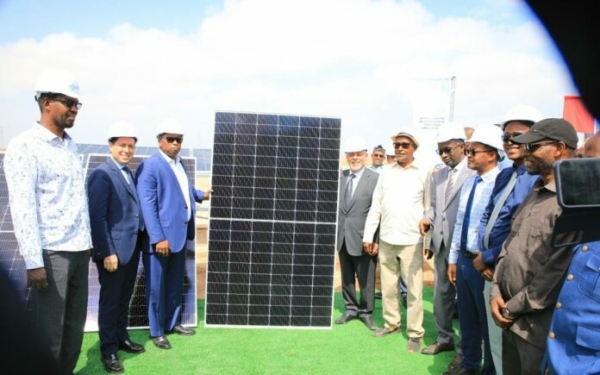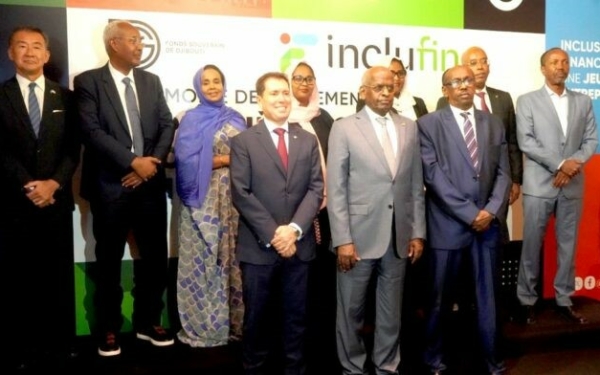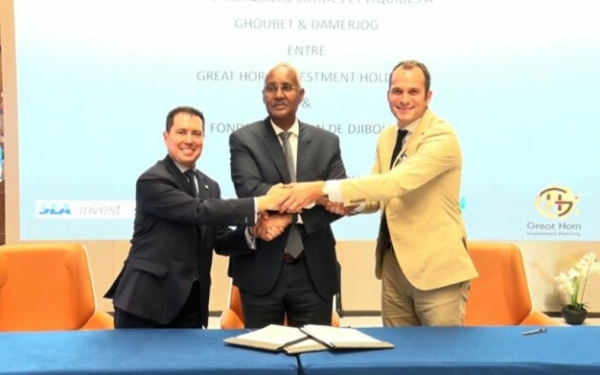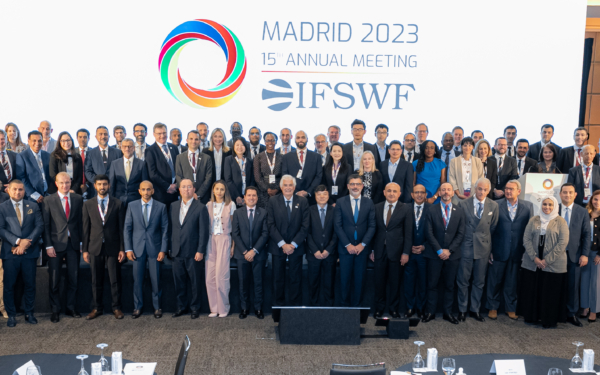Copyright © FSD. All rights reserved
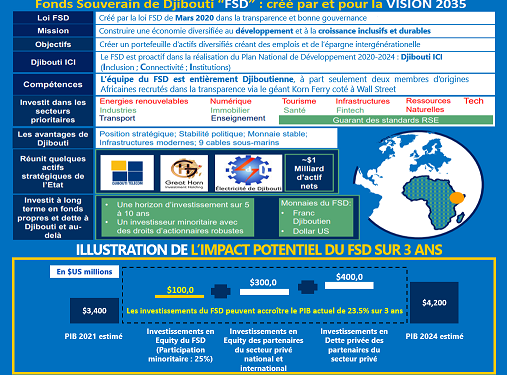
11/04/2022
FONDS SOUVERAIN DE DJIBOUTI, CREATED BY AND FOR VISION 2035
In 2020, and as part of the Vision 2035 of His Excellency the President of the Republic Ismail Omar Guelleh, the State created a sovereign fund, the Fonds Souverain de Djibouti (FSD). The fund’s mission is to contribute to rapid economic diversification and inclusive and sustainable social and economic development and prosperity.
The FSD is poised to catalyze investments in strategic sectors of the economy, such as natural resources and renewable energy, telecommunications, digital and traditional infrastructure, financial services, technology, tourism, health, and education. This institution will contribute to the Djiboutian economy’s diversification and create jobs and intergenerational savings.
Inspired by Temasek and the Singapore success story
The inspiration for the FSD was Temasek, Singapore’s first sovereign wealth fund. The two countries are similar; Both small but at the heart of large and dynamic regions.
Even though Djibouti is 30 times the size of Singapore and is not an island but rather a coastal country on the Horn of Africa, a continent currently home to about 1.4 billion people and will be home to about 2.5 billion in 25-30 years.
Singapore launched Temasek with Singapore Telecom about 45 years ago. They did not have much in terms of oil revenues or any other natural resources.
The composition of the FSD portfolio
As clearly and transparently stipulated in the FSD Act of March 2020, the FSD has been endowed with a portfolio of the country’s strategic assets: 100% of Djibouti Telecom; 40% of Great Horn Investment Holding (GHIH), whose companies cover mainly port activities and generate a large part of GDP (Gross Domestic Product); and Electricité de Djibouti, the national energy champion. In the absence of natural resource revenues, for the time being, the financial resources needed for FSD investments also come in the form of 20% of the annual rent that the various military bases pay to the State of Djibouti.
Impact and multiplier effect of the FSD
The FSD’s priority in the short and medium term is to invest in Djibouti itself.
In the long term, it will continue with projects that will strengthen regional integration before seeking to diversify its assets internationally. A strategy that sovereign wealth funds have adopted over the past few decades.
The size of investments will vary depending on the sector and the project’s complexity. The FSD will generally be a minority investor with a maximum stake of 25% in projects.
In the first quarter of 2022, the D.G. and his investment team developed a $100 million investment program in several projects that are part of the realization of the Djibouti National Development Plan ICI (Inclusion Connectivity Institutions).
It is important to note that the $100 million mentioned only concerns the minority share of the FSD (25%), which works with many national and international private sector partners who can add $700.0 million: $300.0 million in equity and $400.0 million in private debt for leverage and an optimal capital structure. In total, $800 million of investment over three (3) years will add to the current GDP of $3.4 billion to increase it by 23.5% and create a considerable number of jobs by 2024, just with the investments led by the FSD at this time. There will also be an additional positive impact on exports of goods and services and the creation of start-ups, SMEs, and indirect jobs.
Limiting public debt and boosting the private sector
The objective of the FSD is to be a source of ideas and a reference partner in a PPP (Public Private Partnership) perspective that will boost the private sector in Djibouti. Indeed, one of the primary roles of the FSD is also to attract strategic, technical, and financial partners, both national and international, to ensure the 100% financing needed in the form of equity capital and thereby limit public debt.
Also, the FSD law mandates that it manages 60% of the National Social Security Fund (CNSS) reserves and 33% of its annual cash flow. Currently, CNSS funds are invested mainly in low-risk, low-yield term deposits with the local commercial banking sector. For this mandate, the role of the FSD, as the investment engine of the State of Djibouti, is to diversify part of the CNSS funds in different asset classes in the real estate sector, the international bond market, and other assets traditionally held by pension funds. By relying on the know-how of the FSD, the CNSS will be able to build, as is the case with other pension funds in most countries, and in the interest of Djibouti citizens, a well-diversified portfolio, generating returns well above the rates of bank term deposits while controlling the risks.
Finally, the improvement of governance and the application of international standards of CSR (Corporate Social Responsibility) is an important part of FSD’s mission.
The FSD team is entirely Djiboutian, except for the Chief Executive Officer and the Investment Manager, who are fully transparently recruited by international recruitment companies.
These two international skills were based in London, the largest international financial center in the world. They immediately bring 50 years of management, leadership, know-how, and experience in international finance and investment, sectors, and professions that do not yet exist in Djibouti. One of their multidimensional roles is the transfer of know-how and training Djiboutian skills in these new fields and disciplines.
The Chief Executive Officer of the FSD: Dr. Slim Feriani

The new management team of the FSD, led by its Chief Executive Officer Dr. Slim Feriani, took office in December 2021 after a year of transition for the Sovereign Wealth Fund born of the vision of His Excellency Mr. President of the Republic Ismaïl Omar Guelleh.
As part of good governance and transparency, the recruitment of Dr. Slim Feriani was done in full transparency by Korn Ferry – one of the top 5 recruitment companies in the world. Korn Ferry is listed on the New York Stock Exchange with a market capitalization of $3 billion, employing approximately 10,000 experts in over 50 countries.
Dr. Feriani, who is a British-Tunisian national, is a resident of London and Djibouti as a British citizen. He is perfectly trilingual (English, French, and Arabic). He has been the Minister of Industry, Energy, Mining, Renewable Energy, and SMEs in Tunisia.
Dr. Feriani holds an MBA and a Ph.D. in Finance and Investment from George Washington University in Washington D.C., USA, where he taught MBA courses in finance, investment, and international finance between 1989 and 1996.
Dr. Feriani is a citizen of the United Kingdom, where he has excelled in London since 1997 in the world of finance and investment. He works in senior positions, as Chief Investment Officer (CIO), Chief Executive Officer (CEO), and Chairman, at major world-renowned institutions such as the giant Japanese investment and corporate bank Nomura.
During his 33-year career, he has practiced the best international rules and standards of compliance, ethics, and good governance, including those of the Financial Conduct Authority (FCA).
The FCA is the regulator of the U.K. financial sector, comprising 51,000 financial institutions, employing 1 million people, and generating almost 10% of the UK GDP.
-End-
Fonds Souverain de Djibouti : Créé par et pour la VISION 2035 | LA NATION
